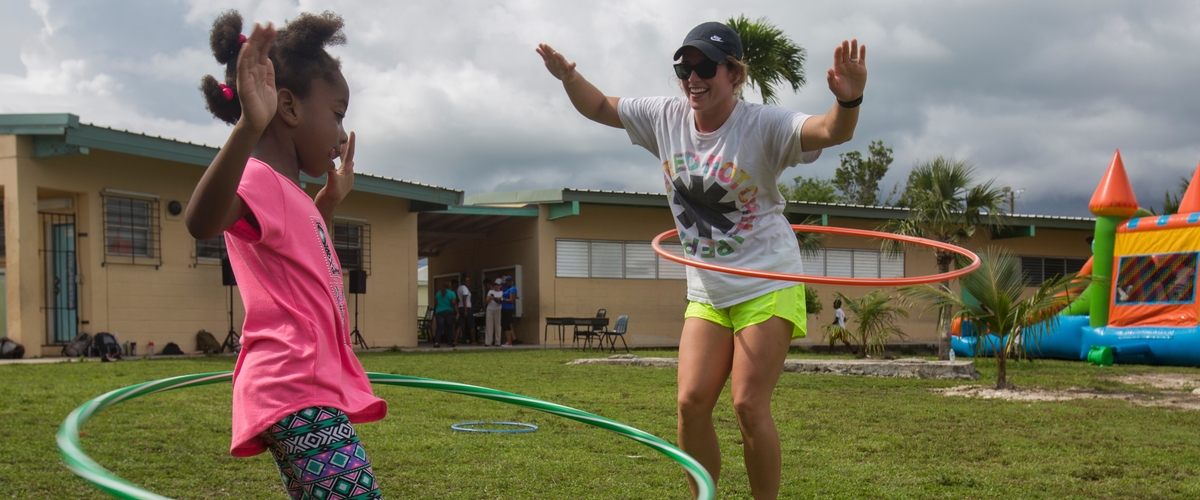Preventing Summer Learning Loss

Important skills learned over the school year can regress over the summer. Here are a few strategies to minimize summer learning loss.
- Make Time for Learning. Set aside time for your student to read each day during the summer break -- 15 to 30 minutes per day is all it takes! Make it fun; keep track of reading minutes or books read. Have a family book club. Your summer activities can include taking your children or teenagers to the base or public library to check out books of interest and/or any summer reading groups they'd like to join.
- Build vocabulary. Use dictionary.com to have a word of the day. Practice saying it and using it in a sentence. Play board games like Pictionary, Scrabble, Apples to Apples, or Boggle.
- Develop Math Skills. Though it may not seem fun to them at the time, working on just three to four math problems per day during the summer can prevent students' mathematical skills from getting rusty. They can look at it as a daily challenge that they must complete, or a daily "to-do" to proudly check off their calendar. Parents can purchase a math workbook for their child's academic level at most bookstores. Have children and teens solve practical math problems when grocery shopping, completing home improvement projects, or figure out the tip at a restaurant.
- Improve Reading Comprehension. To help your children better understand what they're reading, consider offering them a reading comprehension workbook to work on several minutes daily. These can be found at teacher supply stores or many online outlets. Students of all grades and ability levels can benefit scholastically by working with material that offers self-quizzes and high-interest stories. This practice helps develop their fact-retaining and inference-making skills.
- Encourage Creative Writing. Creative writing is a great way to improve your children's written language skills while giving them a fun and imaginative activity during the summer! Have your student write a creative paragraph each week. As a parent, you can help by assisting him or her with choosing a "topic" (such as a family vacation, special outing or holiday memory) to write a paragraph about. Students can also benefit from using a thesaurus and changing several common words to more interesting words. This will make their writing more interesting while learning great new words at the same time.
- Online research. If you are PCSing, have your student do online research about the area where you are moving. Let them analyze best schools, restaurants, fun things to do and write a brief report for you. Your child will be more invested in the move and have something to look forward to as well.
Contact your local Marine and Family Child and Youth programs.
Last Updated: 07 Oct 2021